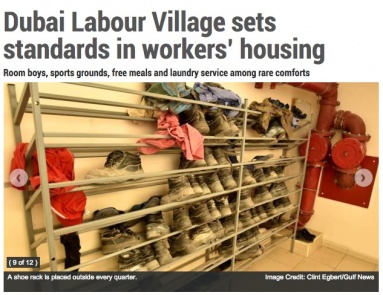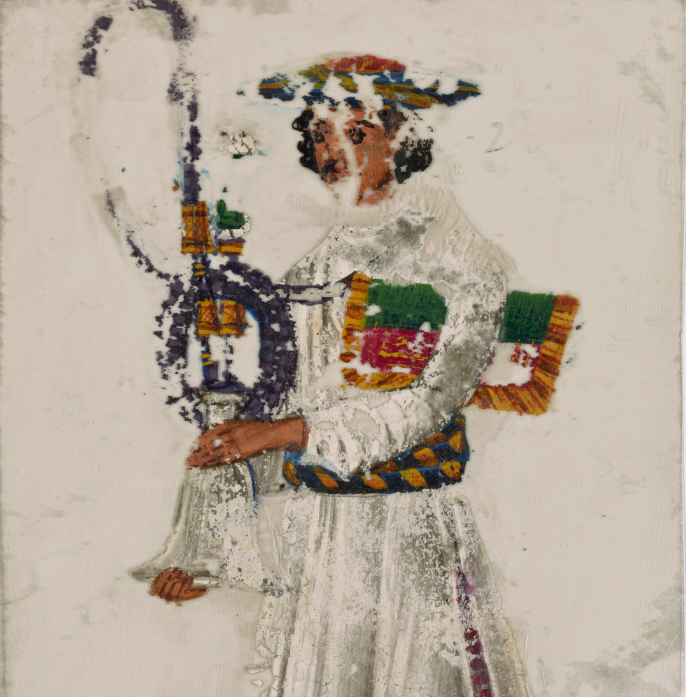A friend brought to my attention this feature from Gulf News celebrating the novel conditions of living quarters for 13,000 workers in one of Dubai's labor "villages."
From the outset the piece manages to strike a feverish tone of insanity, somewhat unusual even for a studied Emirates mouthpiece.
"You can be forgiven for mistaking the housing cluster near the Abu Dhabi border for a gated residential community," the delirious staff writer intones.
Then, guffawing with unbridled enthusiasm, he braves a Vanna White impersonation near a basic storage unit, "The labourers leave their work boots outside on a shoe rack on each floor. Inside, there is a smaller rack for slippers and home shoes."

The tendency to highlight such storied human rights gains is un-new, but buried further down is a phrase remarkable for its economic clarity.
When they leave for work, “room boys” tidy up their rooms, make their beds and pick up laundry. The belongings are neatly tucked away in sturdy cabinet-style closets.
At night, the tired workers return to a clean room and tidy beds, with the laundry ironed and returned in neat piles. The same goes for bedding and linen. A professional organising and labelling system ensures the clothes never get mixed up.
It's all about That Life when the servant is treated to his own servant.
You are only free when you make someone else a commodity.
